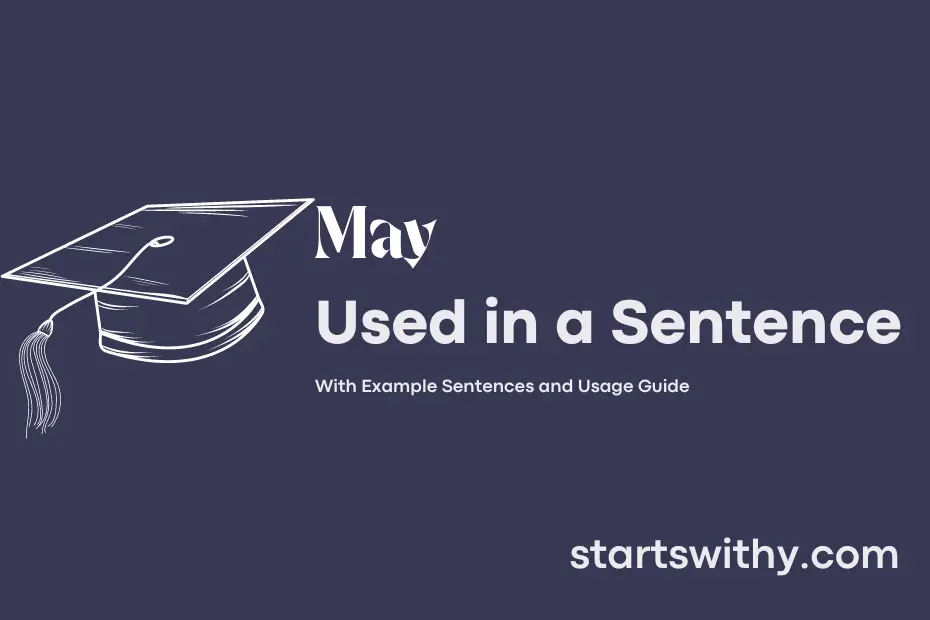Curious about how to use “may” in a sentence? “May” is a modal verb that can express permission, possibility, or likelihood in English. It is a versatile word that adds nuance to your language.
When using “may,” think about whether you are discussing a future scenario where something is permissible, probable, or simply a suggestion. This small but powerful word can subtly change the tone and meaning of your sentence.
7 Examples Of May Used In a Sentence For Kids
- May I have a pencil, please?
- May I go to the bathroom?
- May I have a glass of water?
- May I play with my toys?
- May I sit with my friends?
- May I color this picture?
- May I have a snack?
14 Sentences with May Examples
1.You may want to start studying early for your exams to avoid last-minute stress.
2. Attending career fairs on campus may help you explore various job opportunities.
3. Joining a student club or organization may enhance your college experience.
4. Taking breaks between study sessions may improve your focus and productivity.
5. Seeking help from professors or tutors may clarify any doubts you have about the course material.
6. Exploring internships in your field of study may provide valuable work experience.
7. Creating a study schedule may help you stay organized and manage your time effectively.
8. Participating in extracurricular activities may help you develop new skills and interests.
9. Attending workshops or seminars on campus may broaden your knowledge beyond the classroom.
10. Forming study groups with your classmates may facilitate collaborative learning.
11. Volunteering for community service projects may contribute to your personal growth and development.
12. Choosing elective courses that align with your interests may make learning more enjoyable.
13. Attending networking events may help you build connections with industry professionals.
14. Taking care of your physical and mental health may improve your overall well-being during college.
How To Use May in Sentences?
To use the word “May” in a sentence, you need to consider its different meanings and functions in the English language.
-
Possibility: “May” can be used to express a possibility or permission. For example, “I may go to the movies tonight if I finish my work on time.”
-
Month: “May” is also the name of a month in the calendar. You can refer to it as a specific time period. For instance, “My birthday is in May.”
-
Social niceties: In formal situations, “May” is used to make polite requests or suggestions. For instance, “May I please have a glass of water?”
-
Expressing wishes: “May” can also be used to express wishes or hopes for someone. For example, “May you have a wonderful day ahead!”
-
Third-person singular present: In some cases, “May” is used as a verb in the third-person singular present form. For example, “She may arrive late to the party.”
Remember that the context in which you use the word “May” will determine its meaning. Whether it’s about possibility, permission, time, or etiquette, paying attention to the way “May” functions in a sentence will help you communicate effectively in English.
Conclusion
In conclusion, the examples of sentences featuring the keyword “may” illustrate different ways this modal verb can be used in English. “I may go to the beach tomorrow” expresses a possibility or likelihood, while “She may have forgotten her keys” suggests uncertainty about a past event. The sentence “You may be right” acknowledges a potential truth, and “It may rain later” forecasts a potential future occurrence.
Understanding how to use “may” in sentences is crucial for expressing possibilities, uncertainties, permissions, and predictions in English. By incorporating this versatile modal verb into your communication, you can convey a range of meanings effectively and accurately.



